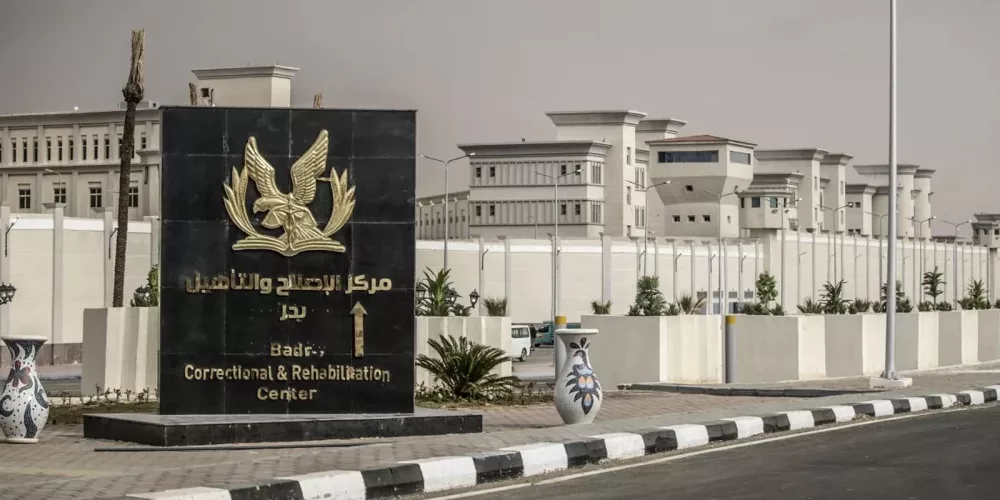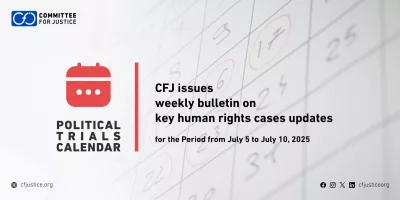The “Committee for Justice” (CFJ) has documented a distress call from the family of detainee El-Sayed El-Sayed Soliman Soliman, held in Badr Prison Complex, located 40 km east of Cairo, who lost his sight due to medical negligence inside his detention facility.
In her statement, Soliman’s wife explained that her husband—who had pre-existing eye problems—underwent surgery at Al-Manial Hospital after a long period of delays and neglect in providing the necessary treatment. She added that the operation, which was supposed to last four hours under local anesthesia, instead took around nine hours, resulting in internal bleeding in the eye and ultimately leading to complete loss of vision.
She further stated that prior to the last operation, a specialist at the hospital had informed her husband that his condition was treatable, but the Badr Prison administration delayed his treatment. When he was finally transferred to the hospital, the specialist doctor was absent, forcing another doctor—who lacked sufficient expertise—to perform the procedure.
According to his wife, Soliman had been suffering from medical neglect for over two years, which worsened his condition. He had already lost sight in one eye, while the other required urgent medical intervention. She also noted that her husband endured harsh treatment during transfers between prisons and hospitals, particularly in extreme heat, which further deteriorated his health.
She concluded her plea by demanding his immediate release through a medical pardon or permission for him to seek treatment at his own expense, emphasizing that his condition worsens daily and that he urgently needs specialized surgeries under the supervision of experienced doctors.
CFJ holds the Egyptian Ministry of Interior and the Prison Authority fully responsible for the deterioration of Soliman’s health, calling for comprehensive medical care for his critical condition. The committee pointed out that ongoing medical negligence in prisons has led to his complete loss of vision and a severe decline in his overall health. Given his deteriorating state and the inhumane detention conditions, the committee demands his immediate release.
CFJ emphasizes that, according to the Egyptian prison regulations, authorities are required to provide adequate medical care to detainees in line with their health needs and ensure proper treatment in case of illness or injury. Article 40 of the prison regulations stipulates that specialist doctors must be available within prisons, and if that is not possible, prisoners must be transferred to hospitals for appropriate treatment.
Additionally, Egypt is obligated to adhere to international laws regarding prisoners’ rights, including the United Nations Standard Minimum Rules for the Treatment of Prisoners (Nelson Mandela Rules), which guarantee prisoners’ right to proper healthcare.






